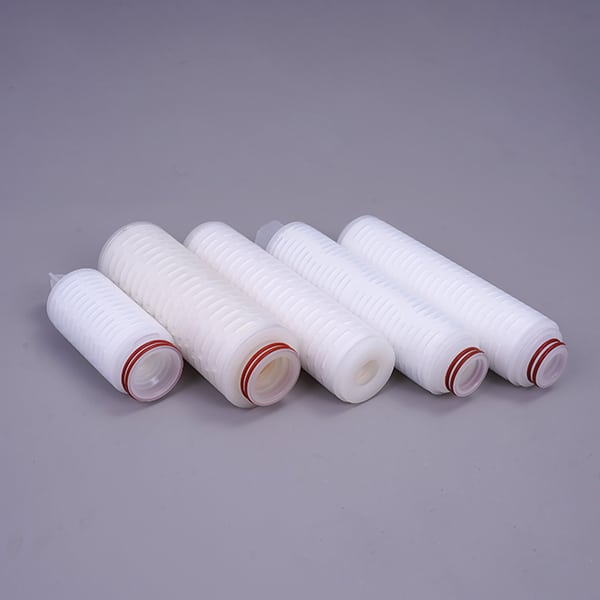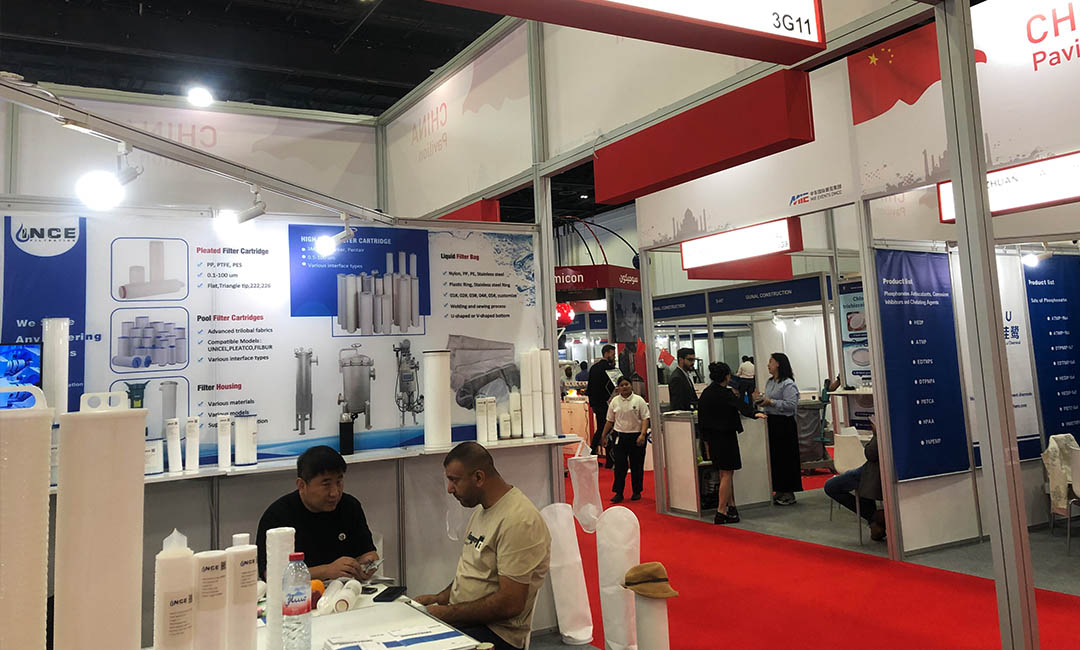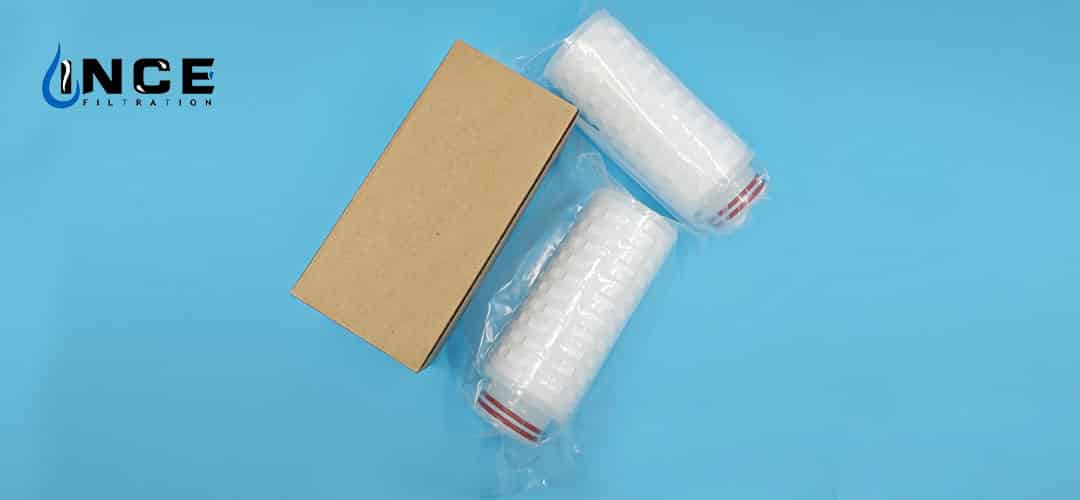
Simplifying Trade Compliance with Pleated Filter Cartridge HS Codes
Understanding Pleated Filter Cartridge HS Codes
Understanding the Harmonized System (HS) codes for pleated filter cartridges is essential for businesses engaged in international trade. These codes serve as a standardized numerical method for classifying traded products, facilitating smoother customs processes and ensuring compliance with various regulations. The HS code system, developed by the World Customs Organization, is utilized by countries worldwide, making it a critical tool for importers and exporters alike. By accurately identifying the HS codes for pleated filter cartridges, companies can navigate the complexities of trade compliance more effectively.
Pleated filter cartridges are widely used in various industries, including water treatment, pharmaceuticals, and food processing. Their design allows for a larger surface area, which enhances filtration efficiency and extends the lifespan of the cartridge. Given their diverse applications, it is crucial to classify these products correctly under the appropriate HS codes. Misclassification can lead to delays in customs clearance, unexpected tariffs, and potential legal issues, which can significantly impact a company’s bottom line.
To begin with, understanding the structure of HS codes is vital. The codes are typically composed of six digits, although some countries may extend this to eight or ten digits for more specific classifications. The first two digits represent the chapter, the next two indicate the heading, and the final two specify the subheading. For pleated filter cartridges, the relevant chapters often fall under Chapter 84, which covers machinery and mechanical appliances, or Chapter 39, which pertains to plastics and articles thereof. Identifying the correct chapter is the first step in ensuring compliance.
Moreover, it is important to recognize that the classification of pleated filter cartridges may vary based on their material composition and intended use. For instance, a pleated filter cartridge made from synthetic materials may fall under a different HS code than one made from natural fibers. Additionally, the specific application of the filter cartridge can influence its classification. For example, cartridges designed for industrial use may have distinct codes compared to those intended for residential applications. Therefore, businesses must conduct thorough research to determine the most accurate HS code for their specific products.
In addition to understanding the classification process, companies should also be aware of the potential implications of trade agreements and tariffs. Many countries have established free trade agreements that can affect the duties applied to certain products. By correctly classifying pleated filter cartridges under the appropriate HS codes, businesses can take advantage of these agreements, potentially reducing costs and enhancing competitiveness in the global market. Furthermore, staying informed about changes in trade regulations and HS code updates is crucial, as these can impact compliance and operational efficiency.
In conclusion, simplifying trade compliance for pleated filter cartridges hinges on a comprehensive understanding of their HS codes. By accurately classifying these products, businesses can streamline customs processes, avoid costly penalties, and leverage trade agreements to their advantage. As the global marketplace continues to evolve, maintaining a proactive approach to HS code classification will be essential for companies seeking to thrive in international trade. Ultimately, investing time and resources into understanding and applying the correct HS codes will yield significant benefits, ensuring that businesses remain compliant and competitive in an increasingly interconnected world.
Streamlining Trade Compliance for Pleated Filter Cartridges
In the realm of international trade, compliance with regulations is paramount, particularly when it comes to the import and export of goods. One area that often presents challenges is the classification of products under the Harmonized System (HS) codes. For manufacturers and distributors of pleated filter cartridges, understanding and correctly applying HS codes is essential for ensuring smooth trade operations. By streamlining trade compliance through the accurate classification of pleated filter cartridges, businesses can mitigate risks associated with customs delays, fines, and potential legal issues.
Pleated filter cartridges, which are widely used in various industries for filtration purposes, must be classified correctly to comply with international trade regulations. The HS code system, developed by the World Customs Organization, provides a standardized numerical method for classifying traded products. This system not only facilitates international trade but also helps in the collection of trade statistics and the application of tariffs. Therefore, selecting the appropriate HS code for pleated filter cartridges is crucial for businesses engaged in global commerce.
To begin with, it is important to recognize that pleated filter cartridges can vary significantly in terms of materials, design, and intended use. These variations can influence the applicable HS code. For instance, pleated filter cartridges made from synthetic materials may fall under a different classification than those made from natural fibers. Consequently, businesses must conduct thorough research to determine the correct HS code that accurately reflects the specific characteristics of their products. This process often involves consulting the customs tariff schedules of the countries involved in the trade, as well as seeking guidance from trade compliance experts.
Moreover, the correct classification of pleated filter cartridges can have significant implications for tariffs and duties. Different HS codes may be subject to varying rates of duty, which can impact the overall cost of importing or exporting these products. By ensuring that pleated filter cartridges are classified accurately, businesses can avoid overpaying on tariffs and can also take advantage of any preferential trade agreements that may apply. This not only enhances profitability but also contributes to a more competitive position in the marketplace.
In addition to financial implications, accurate HS code classification plays a vital role in maintaining compliance with regulatory requirements. Customs authorities are increasingly scrutinizing imports and exports, and any discrepancies in classification can lead to penalties or delays in shipment. By streamlining the process of trade compliance through the use of precise HS codes for pleated filter cartridges, businesses can reduce the likelihood of customs audits and ensure that their products move smoothly across borders.
Furthermore, leveraging technology can significantly enhance the efficiency of trade compliance processes. Many companies are now utilizing software solutions that automate the classification of products based on their specifications. These tools can help businesses quickly identify the correct HS codes for pleated filter cartridges, thereby reducing the potential for human error and expediting the compliance process. As a result, organizations can focus more on their core operations while ensuring that they remain compliant with trade regulations.
In conclusion, simplifying trade compliance for pleated filter cartridges through accurate HS code classification is essential for businesses engaged in international trade. By understanding the nuances of the HS code system, conducting thorough research, and leveraging technology, companies can streamline their compliance processes, minimize risks, and enhance their competitive edge in the global marketplace. Ultimately, a proactive approach to trade compliance not only fosters smoother operations but also contributes to the long-term success of businesses in an increasingly interconnected world.
Best Practices for Managing HS Codes in Filter Cartridge Trade
Trade compliance can be a complex and challenging aspect of doing business, especially when it comes to importing and exporting goods. One key component of trade compliance is the use of Harmonized System (HS) codes, which are standardized codes used to classify products for customs purposes. In the filter cartridge industry, HS codes play a crucial role in ensuring that products are properly classified and that all relevant regulations are followed.

One way to simplify trade compliance in the filter cartridge industry is to use pleated filter cartridge HS codes. Pleated filter cartridges are a popular choice for a wide range of applications, from industrial filtration to water purification. By using specific HS codes for pleated filter cartridges, companies can streamline the classification process and ensure that their products are accurately categorized for customs purposes.
When it comes to managing HS codes for filter cartridges, there are a few best practices that companies should keep in mind. First and foremost, it is important to ensure that the HS codes being used are up to date and accurate. The World Customs Organization regularly updates the Harmonized System to reflect changes in global trade patterns and technology, so it is essential to stay informed about any revisions that may impact the classification of filter cartridges.
In addition to staying current with HS code updates, companies should also take the time to thoroughly research and understand the specific requirements for classifying filter cartridges in different markets. Different countries may have varying regulations and guidelines for the classification of filter cartridges, so it is important to be aware of these differences and ensure that products are classified correctly for each market.

Another best practice for managing HS codes in filter cartridge trade is to work closely with customs brokers and trade compliance experts. These professionals have the knowledge and expertise to help companies navigate the complexities of trade compliance and ensure that products are classified correctly. By partnering with experienced professionals, companies can avoid costly mistakes and ensure that their products are in full compliance with all relevant regulations.
Using pleated filter cartridge HS codes can also help companies streamline their trade compliance processes and reduce the risk of errors. Pleated filter cartridges are a distinct product category with specific characteristics and uses, so using dedicated HS codes for these products can make it easier to classify them accurately. This can help companies avoid delays at customs and ensure that their products reach their intended destination on time.

In conclusion, managing HS codes in filter cartridge trade is an essential aspect of ensuring compliance with customs regulations and facilitating smooth international trade. By using pleated filter cartridge HS codes and following best practices for classification and compliance, companies can simplify the trade compliance process and reduce the risk of errors. Working with customs brokers and trade compliance experts can also help companies navigate the complexities of trade compliance and ensure that their products are classified correctly for each market. By taking a proactive approach to managing HS codes, companies can streamline their trade compliance processes and focus on growing their business in the global marketplace.

